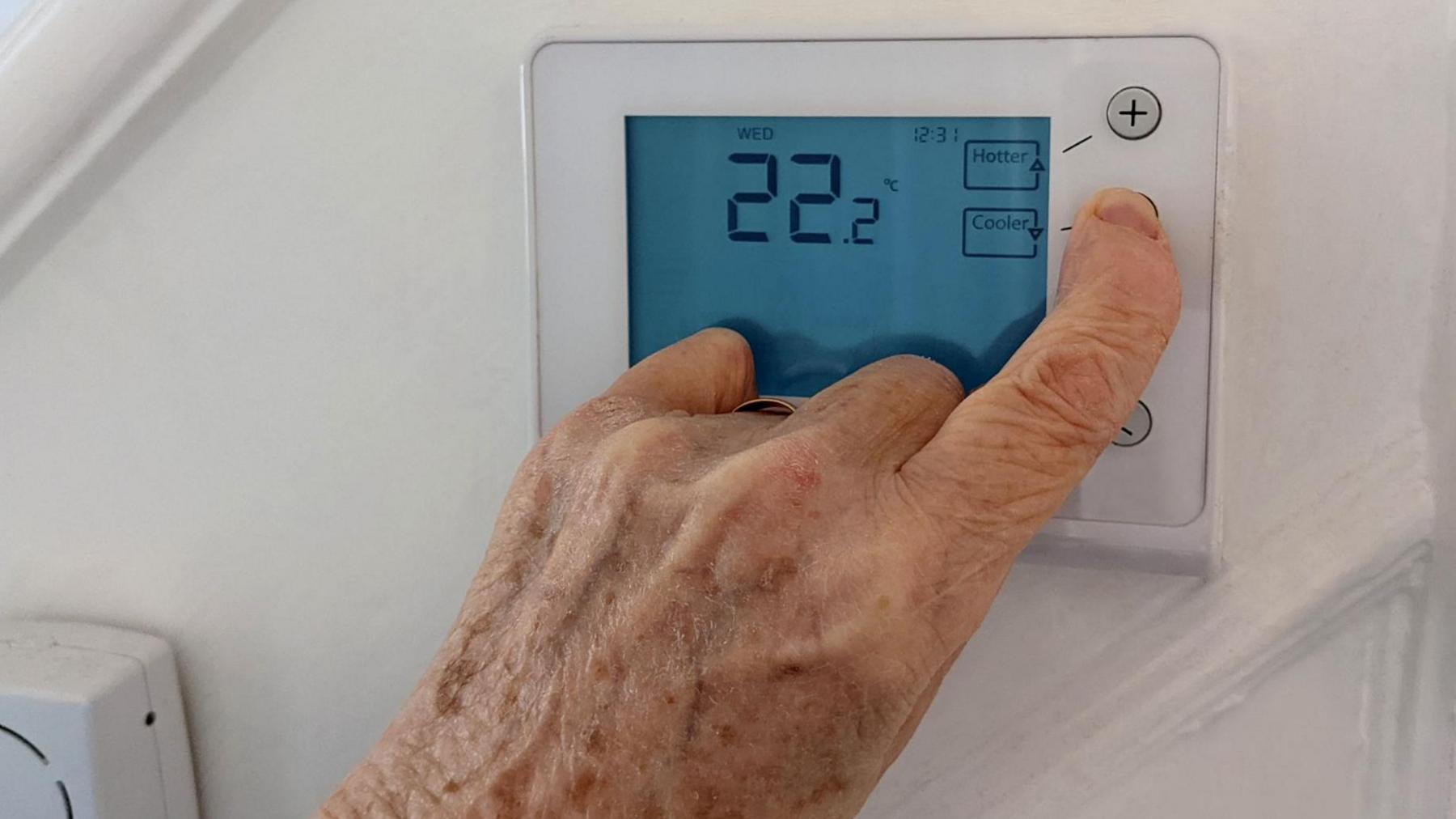Ministers look into cheaper fuel tariff for vulnerable customers

- Published
The Scottish government has said it is working with energy firms to deliver a "social tariff" that could cut fuel bills for vulnerable customers.
The tariff could see some low-income customers charged a reduced rate for their gas and electricity.
It comes as the average household energy bill is set to increase by 拢149 from October after industry watchdog Ofgem confirmed it was raising its price cap.
At the same time, the Scottish government has confirmed it will follow the UK government in no longer providing winter fuel payments to all pensioners.
- Published4 days ago
- Published14 August
The UK benefit is due to be replaced by a Holyrood-run alternative - but ministers have confirmed it will be means tested, while the roll out has been delayed.
Social Justice Secretary Shirley-Anne Somerville said in August the Scottish government had "no choice" after the chancellor announced cuts south of the border.
Scottish ministers say they are now working with E.On, EDF Energy, Scottish Gas (Centrica) and consumer organisations on the tariff scheme which they hope would be implemented across the UK.
Alasdair Allan, the climate action minister, said: "The Scottish government has repeatedly called for a social tariff for those who need it the most, including those in extreme fuel poverty.
"It's great news therefore that the energy suppliers and consumer organisations have agreed to work with us on this."
The minister accepted there was "some way to go" before a social tariff becomes a reality.
He added: "We recognise the urgency in delivering extra support for consumers struggling with their energy bills."
Opt-out system
Gillian Martin, acting Energy Secretary in the Scottish government, wrote to the previous UK government last year, setting out the key features of a social energy tariff.
She said the Scottish government believed the scheme should be used to provide additional support for customers rather than acting as a replacement for existing forms of support.
Ministers say any new social tariff should be applied automatically to anyone in receipt of means-tested benefits - but could also help those on low incomes who just miss out on qualifying for benefits and who are at risk of fuel poverty.
People who have high energy bills because they need to use medical life-saving equipment for long-term conditions should also be eligible for the scheme, the Scottish government said.
The Scottish and UK governments will no longer providing winter fuel payments to all pensioners
Andrew Bartlett, chief executive of consumer body Advice Direct Scotland, which has been campaigning for a UK-wide social energy scheme, said it was "very encouraging that energy suppliers are willing to get around the table and help design a workable social tariff".
Mr Bartlett added: "To be truly effective, struggling households should automatically be placed on the cheapest energy deal through an opt-out system, so they do not have to take any action to benefit."
David Southgate, policy manager at the disability equality charity Scope, also welcomed the creation of the Scottish government working group as a "positive step".
He said: "The devil will be in the detail, and everyone around the table in these discussions must make sure the voices of disabled people are heard.
"At the very least the Scottish government and suppliers must work to ensure disability benefits, like Adult Disability Payment, are included in eligibility criteria."
He added: "We hope the UK government will use this example to do the right thing and implement a nationwide social tariff as soon as possible."